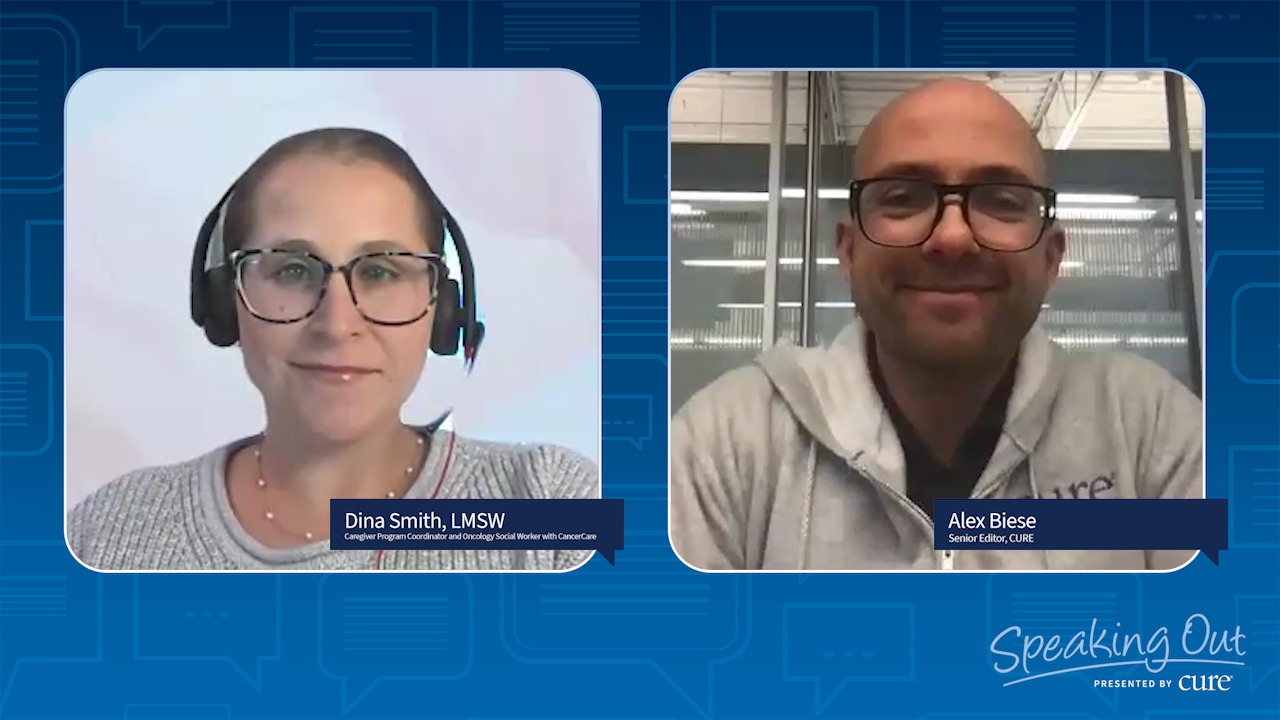- About Us
- Advertise / Support
- Editorial Board
- Contact Us
- CancerNetwork.com
- TargetedOnc.com
- OncLive.com
- OncNursingNews.com
- Terms & Conditions
- Privacy
- Do Not Sell My Information
- Washington My Health My Data
© 2025 MJH Life Sciences™ and CURE - Oncology & Cancer News for Patients & Caregivers. All rights reserved.
Why Cancer Caregivers Need to Avoid Burnout

A nationally-published, award-winning journalist, Alex Biese joined the CURE team as an assistant managing editor in April 2023. Prior to that, Alex's work was published in outlets including the Chicago Sun-Times, MTV.com, USA TODAY and the Press of Atlantic City. Alex is a member of NLGJA: The Association of LGBTQ+ Journalists, and also performs at the Jersey Shore with the acoustic jam band Somewhat Relative.
An expert explained the impact that burnout can have on someone caring for a loved one with cancer.
In order to best care for loved ones with cancer, caregivers need to take care of themselves, as an expert explained in an interview with CURE®.
“No. 1, you know you have to recharge your own battery before you recharge your loved one’s. And also, you need a rest. You need to just take a step back and just let yourself rest every now and then, because if you don't, you're going to get burnt out,” explained Dina Smith, caregiver program coordinator and oncology social worker with CancerCare, in an interview as part of the “Speaking Out” video series.
Burnout, Smith explained, “is basically when you're emotionally and physically exhausted because you have been putting in all of your energy and all of your effort into a situation but you haven't done anything for yourself. So, if you don't do anything for yourself, you're not going to be able to give back.”
Caregivers, Smith said, need to be intentional and proactive when making time for themselves, even if that means scheduling five minutes a day in their calendar to take a step back and re-charge.
“Ignoring your own needs can affect your mood. It can affect your immune system. If you're constantly getting sick, you'll be unable to take care of your loved one,” Smith said. “So, when you get burnt out, when you are going a mile a minute, this can affect your immune system. You might get sick more. You might lose weight or gain weight. You might start unhealthy habits, which, in turn, can affect you physically, and you may not be as present for your loved one.
“So, there are so many reasons why you should practice self-care, but I think above all else, it's so that you can maintain your health [so that] you can be there for your loved one, and you can make sure that you're not only present for your loved one, but also present for other people in your life as well, because your life goes on.”
For more news on cancer updates, research and education, don’t forget to subscribe to CURE®’s newsletters here.
Related Content:




